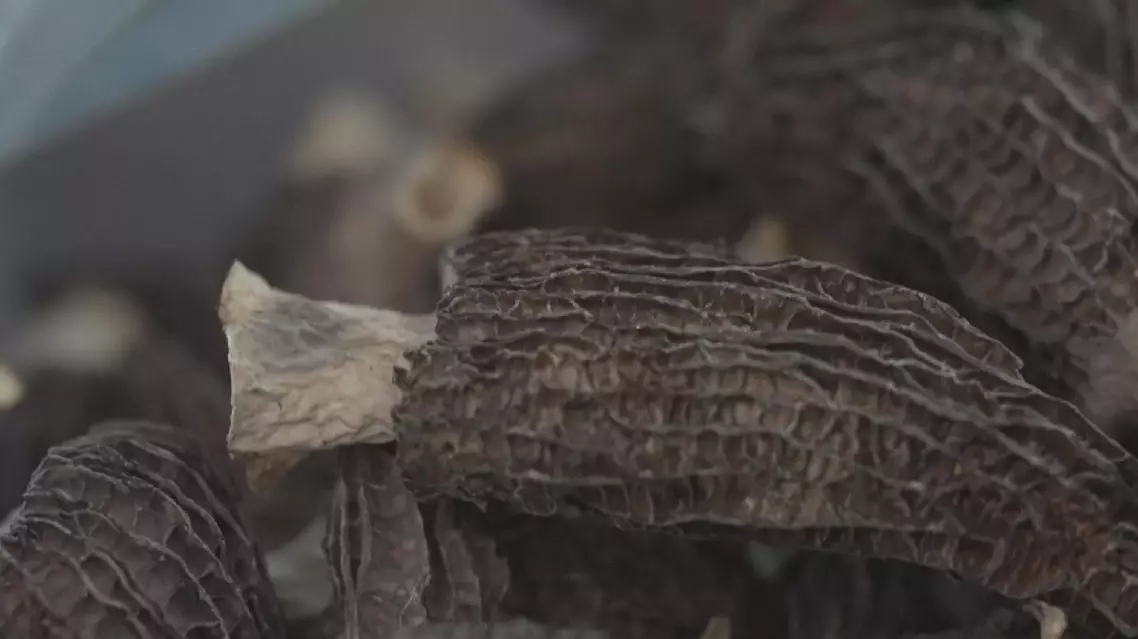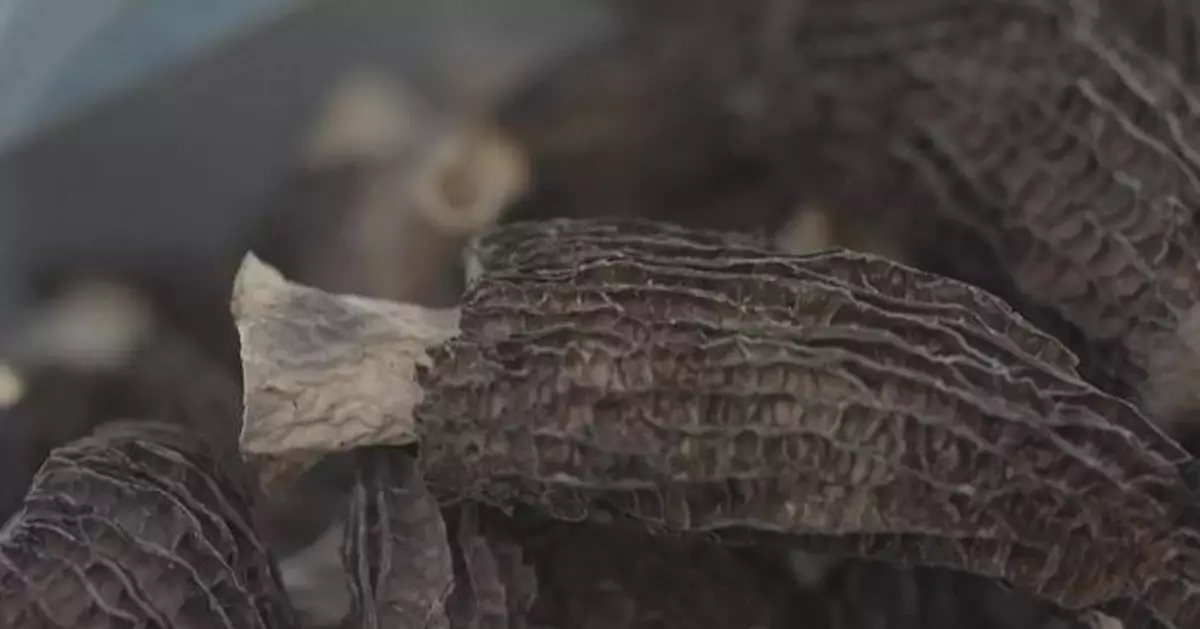Privately owned farms in Jintang County, southwest China's Sichuan Province, are driving a thriving morel mushroom industry, generating some eight billion yuan (about one billion U.S. dollars) annually and boosting local incomes and job opportunities.
In Jintang County, family farms and independent traders are transforming morel mushrooms into a large industry, reshaping the country's agricultural landscape. From early winter planting to early spring harvesting, farmers can pick 100 to 150 kilograms of fresh morels daily, with each mushroom weighing around 10 grams. This delicate fungus now brings in eight billion yuan annually, creating jobs and fostering rural revitalization.
"People from nearby who can't find jobs elsewhere come to work in our fields," said Yi Jianzhi, a morel farmer. When asked during an interview if young people are willing to join, Yi said, "Yes, some come to learn the techniques and then start their own farms."
Jintang accounts for 90 percent of China's morel trade, with family-owned farms at the heart of cultivation. Duan Kaixun, one of the region's earliest morel farmers, shared his insights on the mushrooms' exceptional quality.
"Look at this one. The stem is usually this thick. You can see the distinct lines and the thick flesh. This is a good one," said Duan.
Fresh morels are dried before sale, with four kilograms shrinking to half a kilogram of dried fungus, then shipped across China and beyond. Farmers rotate morels with other crops, allowing three harvests a year.
"Family farms and cooperatives play a crucial role in the export of Jintang morels, helping our morels reach both domestic and international markets," said Xia Hongwu, deputy director of the Jintang County Rural Revitalization Development Service Center.
The industry has also attracted private traders from across the country.
"We're here from Guangdong to buy morels," said a trader from the city of Guangzhou in south China, located some 1,600 kilometers away. "They sell well and taste great. We can sell two to four tonnes a month," another trader added.
Li Yubao, a major wholesaler from south China's Yunnan Province, saw potential in Jintang and set up shop.
"The supply chain here is robust. With high supply and demand, it's the largest distribution hub in the country. Without volume, how could we sell?" he said.
His operation collects 800 kilograms to one tonne of morels daily.
China's private economy, particularly family farms, is leading innovation in morel cultivation and job creation, aligning with national goals for rural modernization. As dried morels reach global markets, Jintang's success underscores the private sector's role in driving economic growth and development.

China's private farms fuel eight billion-yuan morel mushroom industry boom




















































